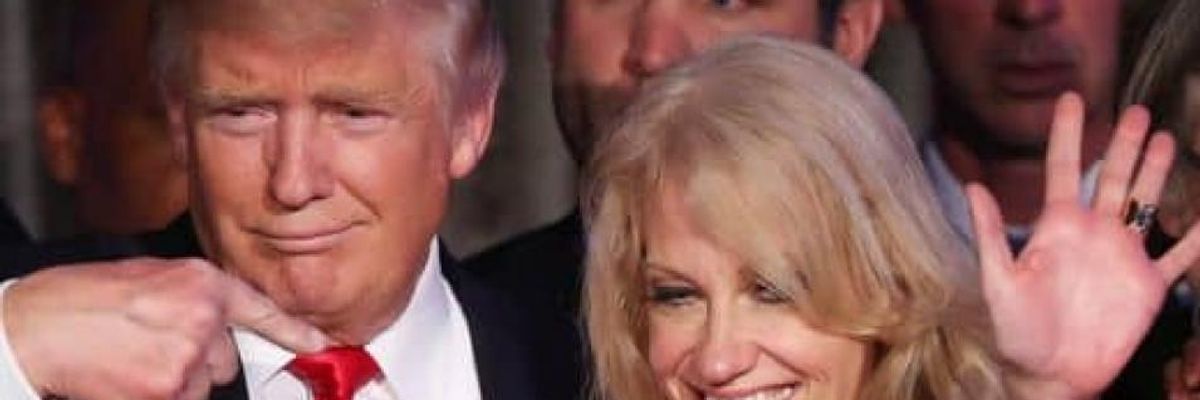Kellyanne Conway, counselor to President Trump, famously coined the Orwellian phrase "alternative facts" when pressed about flat out lies told the previous day by White House press secretary Sean Spicer regarding the crowd size at President Donald Trump's inauguration.
The dictionary definition of a "fact" is a piece of information presented as having an objective reality. Accordingly, the term "alternative fact" is itself is an oxymoron. A fact is both indisputable and immutable. Having "alternatives" to a fact undermines its very meaning.
These semantic gymnastics are compounded by Trump's fundamental and alarming misunderstanding of the role of the three branches of government and the media. The attempt by the Executive branch to recast the role of the media as the mouthpiece of the administration is dangerous. The media is the government's watchdog, not its lap dog.
Sources and whistleblowers will be more important than ever in a Trump administration as the "facts" presented at White House press conferences stray farther and farther from the truth. Some of this misinformation may seem objectively harmless, like inflating the number of people who attended the President's inauguration. But other facts are of historical import; for example, the botched U.S. commando raid in Yemen--the first ordered by President Trump--resulted in the death of innocent women and children. The White House persisted in calling the raid a successful operation.
Trump's antipathy for the media is hard to understand, given that Trump is himself a creation and creature of the media, and his election is due in large measure to its hype. Perhaps the media bears some responsibility in being too slow to stand up for whistleblowers and sources, compounded by its eagerness to grant anonymity and credibility to government officials during the Obama administration. But, now, the media must embrace its role as an aggressive monitor of the Executive branch, and that role must include robust protection for non-official sources and whistleblowers.
Given the Obama administration's unfortunate legacy of prosecuting whistleblowers under the Espionage Act, arguing against a legally-protected privilege between reporters and sources, and enacting workplace surveillance policies like the Insider Threat Program, the stage is set for a president like Trump to use and expand these chilling tools to quash the truth and spread falsehoods about critical matters of national security.
The Trump White House has been plagued by leaks, but seepage from the apparent chaos in the West Wing is not the only source the public will need. The U.S. intelligence and law enforcement agencies claim vast surveillance and operational powers, including the power to capture, interrogate, and kill suspected terrorists. When the President so readily spreads false propagandist narratives, investigative journalists and their sources must forcefully embrace their role as the "Fourth Estate."



